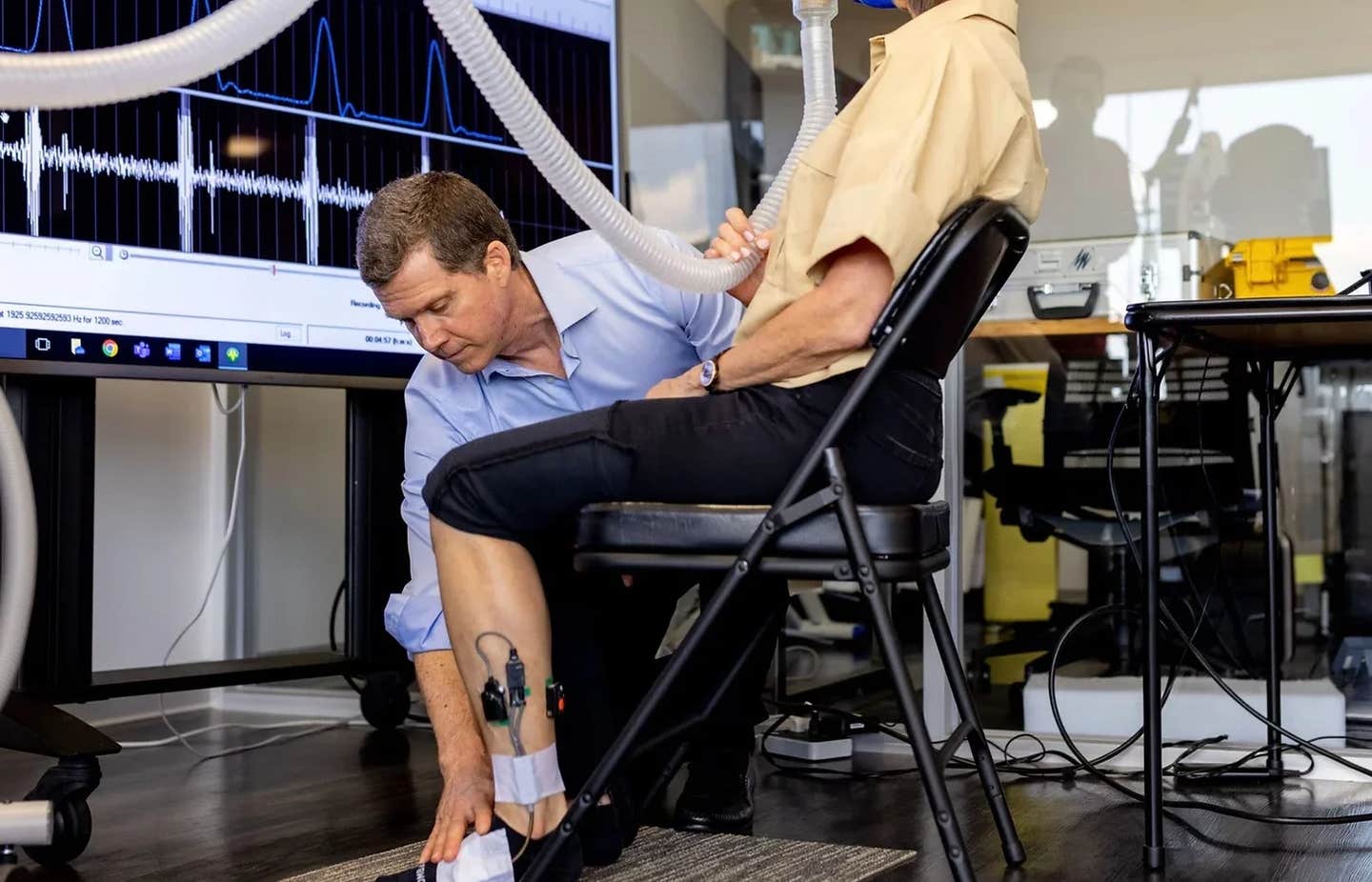Researchers discover promising treatment to stop the progression of ALS
Research suggests that a type of monoclonal antibody might hold the key to halting the progression of amyotrophic lateral sclerosis (ALS)

[Aug 1, 2023: Staff Writer, The Brighter Side of News]
New research suggests that a type of monoclonal antibody, previously tested for certain cancers, might hold the key to halting the progression of amyotrophic lateral sclerosis (ALS). (CREDIT: Getty Images)
In a groundbreaking discovery, new research suggests that a type of monoclonal antibody, previously tested for certain cancers, might hold the key to halting the progression of amyotrophic lateral sclerosis (ALS), a debilitating neurodegenerative disease that currently has no cure.
This pivotal study, conducted by an esteemed team at the Oregon Health & Science University (OHSU), found its spotlight today in the prestigious journal, the Proceedings of the National Academy of Sciences.
The disease, ALS, has remained enigmatic, evading researchers' attempts to pinpoint effective treatments. However, this new investigation, employing both a mouse model and tissue from human brains afflicted by ALS, posthumously donated, has unveiled a compelling clue: immune cell modulation can potentially decelerate the disease's relentless progression.
This isn't the first instance where immune cells have been spotlighted in ALS research. Earlier studies hinted at their potential role. Yet, what sets this research apart is the state-of-the-art high-throughput screening technique the scientists employed. This meticulous approach helped them identify a specific protein, expressed on immune cells located within the brain and spinal cord of those battling ALS.
Related Stories
This protein goes by the name of alpha-5 integrin.
Dr. Bahareh Ajami, Ph.D., the study's senior author and an assistant professor specializing in molecular microbiology, immunology, and behavioral neuroscience at the OHSU School of Medicine, remarked, “When we blocked its expression in mice, we were able to slow down the disease. We hope that it will get to the clinic very soon.”
Harnessing the capabilities of a monoclonal antibody that targets alpha-5 integrin, the researchers benefitted from the fact that this antibody had already undergone rigorous safety evaluations, having been used to treat certain cancer types. Such a head start is invaluable, as it has already cleared numerous safety assessments mandated by the Food and Drug Administration.
"Hopefully, it could be repurposed," Dr. Ajami optimistically stated.
Armed with postmortem tissue from 139 brains generously donated for research, the team discovered the pronounced presence of alpha-5 integrin in the brain areas governing motor function. It's worth noting that this protein was especially conspicuous in the spinal cord, motor cortex, and peripheral nerves during ALS's grip, predominantly expressed by the immune system's microglial cells and macrophages.
Building on this insight, the team tested the monoclonal antibody, which targets alpha-5 integrin, on mice genetically engineered to develop ALS. The results? A significant protection of motor function, a delay in disease progression, and a notable increase in the survival rate of these mice.
“We couldn’t believe they were doing so much better,” a visibly moved Ajami said.
Dr. Ajami's laboratory is renowned for its focus on tweaking the immune system to combat neurodegenerative diseases. Reflecting on the implications of the study, she hinted at the tantalizing possibility of extending immunotherapies to ALS, a strategy that has revolutionized cancer treatment and, more recently, been employed against Alzheimer’s using monoclonal antibodies.
Microglial cells and sciatic nerve macrophages express α5 integrin in ALS mice and display a highly inflammatory profile. t-SNE clustering showing α5 integrin expression in the whole single-cell population (n = 78,293 cells, Upper) and in CD45+/CD11b+ cells (n = 21,250 cells, Lower). (CREDIT: PNAS)
“At this point, we cannot say it’s a cure, but it’s a very interesting start,” she mused, further adding, “It may be similar to what immunotherapy did for cancer or will do for Alzheimer’s by targeting immune cells.”
Dr. Ajami's prior endeavors revolved around studying microglia in ALS. Similarly, the study’s leading author, Dr. Audie Chiot, Ph.D., of OHSU, had previously identified peripheral nerve macrophages in ALS mice as potential therapeutic targets. This latest research elegantly dovetails with their earlier findings, emphasizing the significance of a targetable protein on these cells.
Sciatic nerve sections of control (C57Bl6) and SOD1G93A mice at the age of end stage and disease end stage, respectively (on average 164 d) stained for α5 integrin (green) and macrophage markers CD11b-CD68 and F4/80 (red). (Scale bar, 50 μm.). (CREDIT: PNAS)
Ajami, who joined OHSU in September 2019, initiated this line of research during her postdoctoral tenure at Stanford University. She envisages the next research phase as delving into dose-response studies using the mouse model. Her ultimate ambition? Paving the way for this breakthrough to metamorphose into a life-altering treatment for ALS patients.
The collective intellectual might behind this study is formidable. Apart from Dr. Ajami and Dr. Chiot, notable contributors include Dr. Lawrence Steinman, Ph.D., of Stanford; co-primary author Dr. Shanu F. Roemer, M.D., from the Mayo Clinic; Lisa Ryner and Michael Leviten representing Pasithea Therapeutics; and several accomplished researchers from OHSU and the Mayo Clinic.
While the road to a definitive cure for ALS remains uncertain, research such as this ignites hope and demonstrates the relentless pursuit of science in overcoming challenges, one breakthrough at a time.
Note: Materials provided above by The Brighter Side of News. Content may be edited for style and length.
Like these kind of feel good stories? Get the Brighter Side of News' newsletter.
Joseph Shavit
Head Science News Writer | Communicating Innovation & Discovery
Based in Los Angeles, Joseph Shavit is an accomplished science journalist, head science news writer and co-founder at The Brighter Side of News, where he translates cutting-edge discoveries into compelling stories for a broad audience. With a strong background spanning science, business, product management, media leadership, and entrepreneurship, Joseph brings a unique perspective to science communication. His expertise allows him to uncover the intersection of technological advancements and market potential, shedding light on how groundbreaking research evolves into transformative products and industries.



